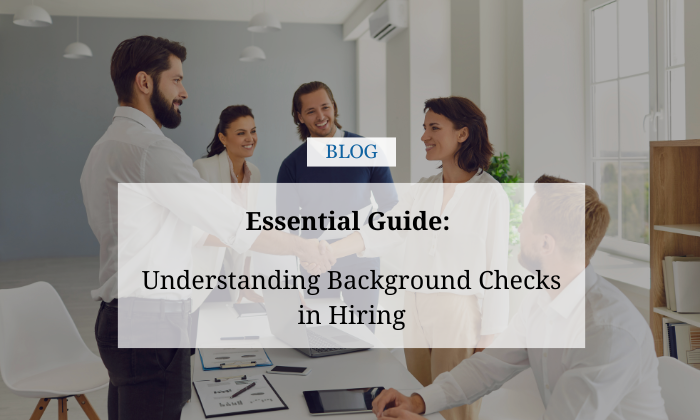Ensuring the success and security of your business starts with making sound hiring decisions. Negligent hiring, the failure to exercise reasonable care in the hiring process, can have far-reaching consequences for organizations. From financial losses to damaged reputations and legal liabilities, the repercussions of negligent hiring are significant. However, with the right strategies and precautions in place, businesses can proactively mitigate these risks.
Ensuring the success and security of your business starts with making sound hiring decisions. Negligent hiring, the failure to exercise reasonable care in the hiring process, can have far-reaching consequences for organizations. From financial losses to damaged reputations and legal liabilities, the repercussions of negligent hiring are significant. However, with the right strategies and precautions in place, businesses can proactively mitigate these risks.
Definition and Legal Aspects of Negligent Hiring
Negligent hiring refers to the failure of an employer to exercise reasonable care in the hiring process, resulting in the employment of an individual who poses a foreseeable risk of harm to others. It is a legal concept that holds employers responsible for the actions of their employees if it can be shown that the employer failed to take reasonable precautions to prevent harm.
From a legal perspective, negligent hiring falls under the broader category of negligence torts. Employers have a duty of care to provide a safe environment for their employees, customers, and the general public. Negligent hiring claims typically arise when an employee’s actions, such as acts of violence, theft, or harassment, cause harm to others, and it can be demonstrated that the employer failed to adequately screen or assess the employee’s background prior to hiring.
Numerous high-profile cases have highlighted the importance of diligent hiring practices. For instance, a case involving a company that hired a driver with a history of DUI (driving under the influence) convictions, who subsequently caused a fatal accident, resulted in significant legal and financial repercussions for the employer. Similarly, instances of companies hiring individuals with a history of violent behavior or sexual misconduct have resulted in devastating consequences, including lawsuits, damaged reputations, and diminished public trust.
Potential Consequences for Businesses
Negligent hiring can have wide-ranging consequences for businesses, affecting their bottom line, reputation, and long-term viability. Some potential consequences include:
- Financial liabilities: Businesses may be held financially responsible for the harm caused by an employee if it can be demonstrated that the harm was foreseeable and could have been prevented through proper screening and due diligence.
- Legal penalties: Negligent hiring can lead to legal actions such as lawsuits, fines, and regulatory penalties. These legal battles can drain resources, disrupt operations, and tarnish a company’s standing.
- Reputational damage: News of a negligent hiring incident can quickly spread, damaging a company’s reputation and eroding trust among customers, partners, and stakeholders. Rebuilding trust and restoring a positive brand image can be a long and challenging process.
- Employee morale and productivity: Incidents resulting from negligent hiring can have a detrimental impact on employee morale, leading to decreased productivity, increased turnover, and a toxic work environment.
Steps to Avoid Negligent Hiring
To avoid the detrimental consequences of negligent hiring, businesses must implement key steps in their hiring process.
A. Thorough job analysis and accurate job descriptions:
Before initiating the hiring process, it is crucial to conduct a thorough job analysis. This involves identifying the essential job functions, required qualifications, and any specific skills or experiences necessary for success in the role. By clearly defining the job requirements, you can ensure that candidates are appropriately evaluated based on the job’s demands. Accurate job descriptions also help set realistic expectations for potential hires and minimize the risk of hiring individuals who are ill-suited for the position.
B. Effective screening and background checks:
Screening and background checks are vital components of a diligent hiring process. Employers should implement comprehensive screening measures to verify the accuracy of the information provided by candidates and uncover any potential red flags. Some essential background checks include:
- Criminal background checks: Conducting criminal background checks helps identify candidates with a history of criminal offenses that may pose a risk to the workplace or others.
- Employment history verification: Confirming a candidate’s employment history ensures that their claimed work experience is accurate and valid.
- Reference checks: Contacting provided references allows for an assessment of a candidate’s past performance, work ethic, and suitability for the role.
- Educational qualification verification: Confirming educational credentials ensures that candidates possess the required qualifications for the position.
C. Implementing a structured interview process:
A structured interview process helps maintain consistency and objectivity throughout candidate evaluations. Develop a set of standardized interview questions tailored to assess the specific skills, competencies, and behaviors required for the role. This approach enables a fair and systematic comparison of candidates, minimizing the risk of biased or arbitrary hiring decisions.
D. Utilizing pre-employment assessments and tests:
Supplementing interviews with pre-employment assessments or tests can provide valuable insights into a candidate’s abilities, personality traits, and cognitive skills. Depending on the role, these assessments can include aptitude tests, personality assessments, or job-specific skill evaluations. Such assessments help ensure that candidates possess the necessary attributes to excel in their potential role.
E. Compliance with applicable laws and regulations:
Adhering to relevant laws and regulations is essential during the hiring process. Two critical guidelines to consider are:
- Equal Employment Opportunity Commission (EEOC) guidelines: Familiarize yourself with EEOC guidelines to avoid discriminatory practices and ensure fair treatment of all candidates based on their qualifications and merits.
- Fair Credit Reporting Act (FCRA) requirements: If conducting background checks through third-party consumer reporting agencies, comply with FCRA guidelines, which include obtaining candidate consent, providing proper disclosures, and respecting their rights in the event adverse action is taken based on the report.
F. Establishing clear policies and procedures:
Developing and documenting clear policies and procedures for the hiring process is essential. This includes outlining the steps to be followed, roles and responsibilities of hiring managers and HR personnel, and adherence to legal and ethical guidelines. Regularly reviewing and updating these policies ensures they align with evolving best practices and compliance requirements
Best Practices for Hiring
Implementing best practices in your hiring process is crucial to finding and retaining top talent while avoiding the risks of negligent hiring.
A. Establishing a strong recruitment and selection process:
Develop a well-defined recruitment and selection process that aligns with your organization’s goals and values. Clearly outline the steps, from job posting to onboarding, and ensure consistency in implementing them across all positions. This process should encompass strategies for sourcing diverse talent, promoting internal mobility, and attracting top candidates.
B. Involving multiple stakeholders in the hiring process:
Include various stakeholders in the hiring process, such as hiring managers, HR personnel, and team members who will work closely with the new hire. Their perspectives and insights can provide a well-rounded evaluation of candidates, reducing bias and increasing the chances of finding the best fit for the role and the team.
C. Documenting all steps taken during the hiring process:
Maintain thorough documentation of all hiring-related activities, including job postings, candidate resumes, interview notes, assessment results, and reference checks. This documentation serves as evidence of the steps taken to make informed decisions and can be invaluable in the event of any legal inquiries or disputes.
D. Ongoing employee monitoring and performance evaluations:
Implement a system for continuous monitoring of employee performance and conduct regular evaluations. This practice allows you to identify any potential issues early on, address them promptly, and take appropriate actions, such as providing additional training or addressing performance gaps. Regular performance evaluations also help ensure that employees are meeting expectations and contributing to the organization’s success.
Training and Education
Training and education play a crucial role in preventing negligent hiring.
A. Educating hiring managers and HR personnel:
Providing training to hiring managers and HR personnel is essential to equip them with the knowledge and skills needed to make informed hiring decisions. This training should focus on understanding the legal implications of negligent hiring, recognizing potential risks and red flags, conducting effective interviews, and implementing fair and unbiased selection processes. By enhancing their expertise, you empower your hiring team to navigate the hiring process with diligence and care.
B. Providing training on recognizing red flags and potential risks:
Educate your hiring team on how to identify red flags and potential risks during the hiring process. This training should include guidance on recognizing inconsistencies in resumes, detecting misleading information, and assessing candidate behavior during interviews. By equipping your team with these skills, you can minimize the chances of overlooking warning signs that may indicate a candidate’s unsuitability for the position.
C. Promoting a culture of due diligence:
Instill a culture of due diligence throughout your organization by emphasizing the importance of thorough screening and background checks. Encourage open communication about potential concerns and ensure that all employees understand their responsibility to maintain a safe and productive work environment. By fostering a culture of vigilance and accountability, you create an environment where negligent hiring risks are minimized.
Continuous training and education are vital in keeping your hiring team up-to-date with evolving best practices, legal requirements, and industry standards. By investing in their development, you strengthen your organization’s ability to make informed and responsible hiring decisions.
Conclusion
Negligent hiring is a risk that no business can afford to overlook. The consequences of hiring employees without proper screening and due diligence can be devastating, leading to financial losses, damaged reputations, and legal liabilities.
Thorough job analysis, effective screening and background checks, structured interviews, and pre-employment assessments are essential components of a diligent hiring process. Compliance with applicable laws and regulations, such as EEOC guidelines and FCRA requirements, is crucial. Establishing clear policies and involving multiple stakeholders in the hiring process adds transparency and accountability.
Furthermore, investing in training and education for hiring managers and HR personnel fosters a culture of due diligence and promotes informed decision-making. By continuously updating their knowledge and skills, organizations can adapt to evolving best practices and legal requirements.
Avoiding negligent hiring is not only a legal and financial imperative but also a moral obligation. By prioritizing responsible hiring practices, businesses protect their employees, customers, and stakeholders while creating a positive work environment. Ultimately, diligent hiring enhances a company’s success, reputation, and long-term viability.
How Can Securecheck360 Help?
When it comes to the criminal background checks of job applicants, it is crucial to have a clear understanding of who we are welcoming into our workplace, which should be a safe and secure environment for all. Everyone deserves the right to be informed if someone may have undisclosed information or a questionable past.
At Securecheck360, we provide employers with comprehensive criminal background screening services. Our goal is to help organizations uncover the full picture of an individual’s background. By utilizing our services, employers can make informed decisions and ensure the safety and well-being of their workforce. With Securecheck360, you can have peace of mind knowing that you are taking the necessary steps to create a secure work environment.
To learn more about our services, book your free demo today!







